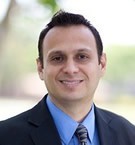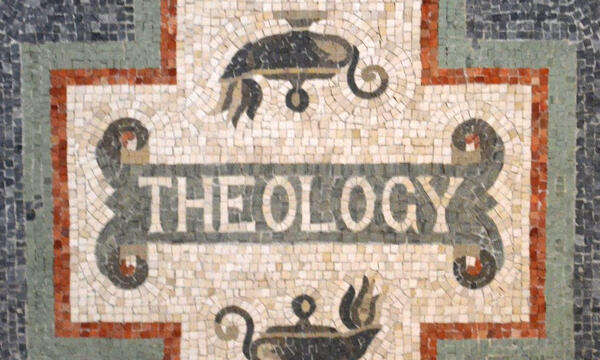This post is also available in Spanish.
Perhaps you, like me, are tired of hearing phrases like “in these difficult times,” “unprecedented circumstances,” or what I consider the worst of all, “the new normal.” After many weeks of confinement and months of fighting the global pandemic caused by COVID-19, I have noticed that the mood of many people has been declining more and more. We all want this pandemic to be like a nightmare from the past and somehow re-experience something of the life we had that we did not realize how much we should had appreciated. The cost of human, economic and emotional losses is incalculable. Our entire existence has been disrupted and worst of all, the pandemic has not only not ended, but continues to expand more and more. We are tired, but we are confirming that the virus does not respect our times, it does not depend on political positions or wishes and it does not discriminate among people.
In the midst of these circumstances, the lack of solidarity to help each other during this pandemic is also increasing. Also, many politicians with their desires to return to normality have caused some people to lose confidence in the health authorities and in the scientific community to seek solutions for the common wellbeing. At times it would seem that the description of the time of the Judges “everyone did what was right in his own eyes” is repeated around us (Judges 21:25). However, the followers of Jesus are neither adrift nor lost in the confusion of messages. Christ is our Lord and He helps us to understand the world in which we live and to represent him with our actions.
Jesus Christ is the Lord of our salvation, but also the Lord of creation. Colossians 1:14-20 is one of the most important Christological passages in Scripture and clearly shows us that Christ is the Lord of the entire universe.
In whom [Christ] we have redemption, the forgiveness of sins.
He is the image of the invisible God, the firstborn of all creation. For by Him all things were created, both in the heavens and on earth, visible and invisible, whether thrones or dominions or rulers or authorities—all things have been created through Him and for Him. He is before all things, and in Him all things hold together. He is also head of the body, the church; and He is the beginning, the firstborn from the dead, so that He Himself will come to have first place in everything. For it was the Father’s good pleasure for all the fullness to dwell in Him, and through Him to reconcile all things to Himself, having made peace through the blood of His cross; through Him, I say, whether things on earth or things in heaven.
Evidently Christ is the Lord of our salvation and the foundation of our faith. But it is equally important to emphasize that Christ is also the Lord of all creation and that, therefore, there should be no contradiction between our faith (the spiritual) and creation (the earthly or physical). Based on this idea masterfully described in Colossians, I would like to share with you two fundamental principles to face the situation we are experiencing and then suggest practical applications while we wait patiently for the pandemic to end.
I. Science is our friend and does not contradict our faith
There is not and should not be a conflict between science and the Christian faith. Jesus Christ is the Lord of creation and everything was created by Him and for Him. COVID-19 is a new virus and scientists from all over the world are trying to discover its behavior and look for solutions to mitigate its effects and a vaccine to protect us all. For this reason, it is normal that every day we learn more about the virus and that the indications of the health authorities change over time. Discovering how creation works, even diseases caused by the fall as in this situation, is really an act of worship because it is a way of knowing God more. As we increasingly discover the world in which we live, we see the divine footprints in all of creation.
The lordship of Christ is the foundation of creation and scientific research. Therefore, Christians must support science and human learning. Historian Mark Noll described it this way in his book Jesus Christ and the Life of the Mind:
If what we claim about Jesus Christ is true, then evangelicals should be among the most active, most serious, and most open-minded advocates of general human learning. Evangelical hesitation about scholarship in general or about pursuing learning wholeheartedly is, in other words, antithetical to the Christ-centered basis of the evangelical mind.
II. Jesus is our Lord and we don't live with divided loyalties
In the midst of differences of opinion and political agendas, Christians do not have to be adrift or divided. Political leaders and people with social influence often make decisions based on their own interests or influenced by social or economic pressure. The lordship of Christ guides us to place our allegiance only on Christ and his values. Human beings, created in the image of God, have more value than any economic agenda or interests. Theologian Cornelius Plantinga in his excellent devotional book Beyond Doubt describes our relationship with the government and with God as follows:
The Christian church obeys the state, but obeys God first. The state is God's instrument of justice and peace, but like all else, it needs reform. So, we offer obedience, but not reverence. We honor the state, and also keep an eye on it. Sometimes we honor the state by protesting its evil, and by refusing to give in to it. After all, Caesar is emperor, but Christ is Lord, and Christians are people who know the difference.
Therefore, and based on these two principles, I wish to leave you with four practical applications as we continue to confront this pandemic in the hope of an early solution:
1. We need to be more humble in our judgments and in our opinions.
Each of us think that our opinions are correct and we often forget that Jesus is the only Lord and we are all in search of the truth. It is very easy to think that our circumstances define the reality of others and we forget that in this global pandemic each person faces this situation differently. This is why it is imperative that we listen to the voices of others and that we have empathy for them. In the midst of so many contradictory messages, we should seek that our voices do not add more confusion to our surroundings.
2. We must listen to and follow the recommendations of the true experts.
Health authorities are doing everything possible to save lives and guide us to appropriate behavior that helps control the epidemic and we can all somehow return to most of our daily activities. World scientists have concluded that the three most important activities to curb the epidemic at the moment are washing our hands frequently and avoiding touching our face; keep a distance of 6 feet with people who do not live in the same house; and use face masks when we are out and especially when we cannot keep our distance from other people. These simple measures are not intended to restrict freedoms but to save lives.
3. We must love each other in practical and concrete ways.
In seeking the benefit of others, we show that we are actually Jesus' disciples and follow his example. There are many ways to help others in these times of great need. In addition to offering our financial and emotional support to people in need, perhaps the simplest way to show our love is to wear a face mask. Since tragically this disease causes people to be infected and being asymptomatic, the mouth cover helps not to infect others without noticing. Face masks do not necessarily prevent us from getting sick, but it does help us not to spread it to other people. In what other ways can you show your love to others at this time?
4. We must trust the Lord who is always in control of everything.
It is true that we are tired and concerned about the world situation. We all have lost something and some have done it in ways we cannot even imagine. Jesus is not absent and remains in control of the universe. In these moments we can take our burdens and worries to the throne of God and at the same time trust and rest in the Lord. Our faith is not blind or imaginary, but is centered in the only and sovereign Lord of creation and of our salvation.
If you're interested in biblical perspectives on the COVID-19 pandemic, here is another post from Octavio Esqueda.
 Biola University
Biola University
.jpg)
.jpg)

.jpg)